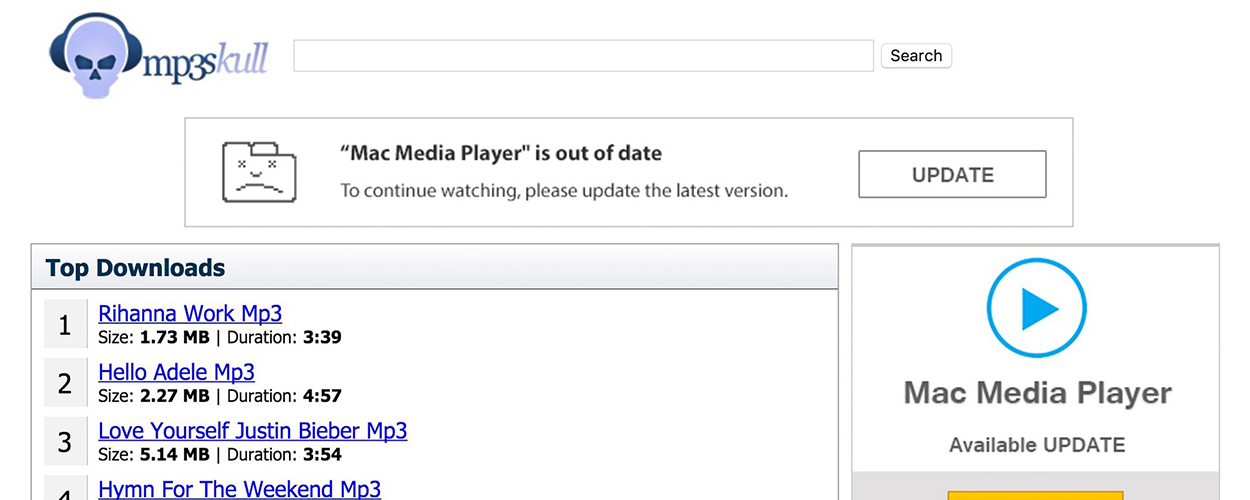This website uses cookies so that we can provide you with the best user experience possible. Cookie information is stored in your browser and performs functions such as recognising you when you return to our website and helping our team to understand which sections of the website you find most interesting and useful.
Business News Digital Labels & Publishers Legal
RIAA and Cloudflare reach agreement over theoretical MP3Skull actions
By Chris Cooke | Published on Friday 4 May 2018

The Recording Industry Association Of America has reached an agreement with internet services firm Cloudflare over what action both parties will take if defunct piracy site MP3Skull ever resurfaces and tries to utilise the net company’s platform.
Back in 2016, the RIAA successfully sued MP3Skull, partly because the piracy set-up failed to defend itself against the copyright infringement lawsuit that had been filed by the American record companies. The court awarded the record industry $22 million in damages and the rights to seize and block the copyright infringing service’s domains.
The chances of the labels ever seeing any of those damages seemed slim, but the domain blocking order was a useful tool for the RIAA in its ongoing bid to block access to unlicensed sources of music content. And it used that tool to seize or block various domains linked to MP3Skull. The piracy site initially responded by doing the domain hop thing.
As part of that activity, the RIAA demanded that Cloudflare – a provider of so called reverse proxy services, among other things – block certain domains that the labels said were [a] linked to MP3Skull and [b] navigating traffic through the Cloudflare system.
Although Cloudflare is an entirely legitimate business, it has had various run ins with the copyright industries over what it should or shouldn’t do when allegedly (or undeniably) copyright infringing websites use its services.
In response to the RIAA’s requests in relation to the MP3Skull domains, Cloudflare countered that under the US Digital Millennium Copyright Act it was wasn’t required to instigate any such blockades. The RIAA went back to court to object to that argument, and the judge sided with the labels, saying that the DMCA wasn’t relevant here.
There were, however, still some questions to be answered about Cloudflare’s exact obligations, which mainly centred on a debate over whether or not the internet firm was in “active concert or participation” with MP3Skull by providing it with various services. But by that point MP3Skull had ceased operating anyway, so the RIAA no long wished to enforce any orders and those questions therefore went unanswered.
With that in mind, Cloudflare subsequently went back to court asking that the order against it be vacated. The RIAA then objected to that request last August, arguing that MP3Skull could pop back up at anytime, so the legal order should remain in place. Especially as, if that never did happen, the order couldn’t cause any inconvenience to Cloudflare.
The court ultimately refused Cloudflare’s request to rescind the order and instead urged it and the RIAA to agree a process for what might happen if MP3Skull suddenly did re-emerge. Such a process has now been agreed and was recently approved by the court.
That process sets out how the RIAA can secure an amended court order to cover any new domains being used by a back-in-business MP3Skull and what Cloudflare must do if those domains try to make use of its services. It also provides an opportunity for Cloudflare to object and a deadline for when it must take action.
However, at Cloudflare’s request, the court order specifically stresses that it is not – repeat NOT – answering that question over whether or not the internet company was or would ever be in “active concert or participation” with MP3Skull.
The judge wrote: “For the sake of clarity, the court’s direction to Cloudflare … is not a finding that Cloudflare is ‘in active concert or participation’ with [MP3Skull]”. So that’s good. No one wants tricky legal questions answered.





